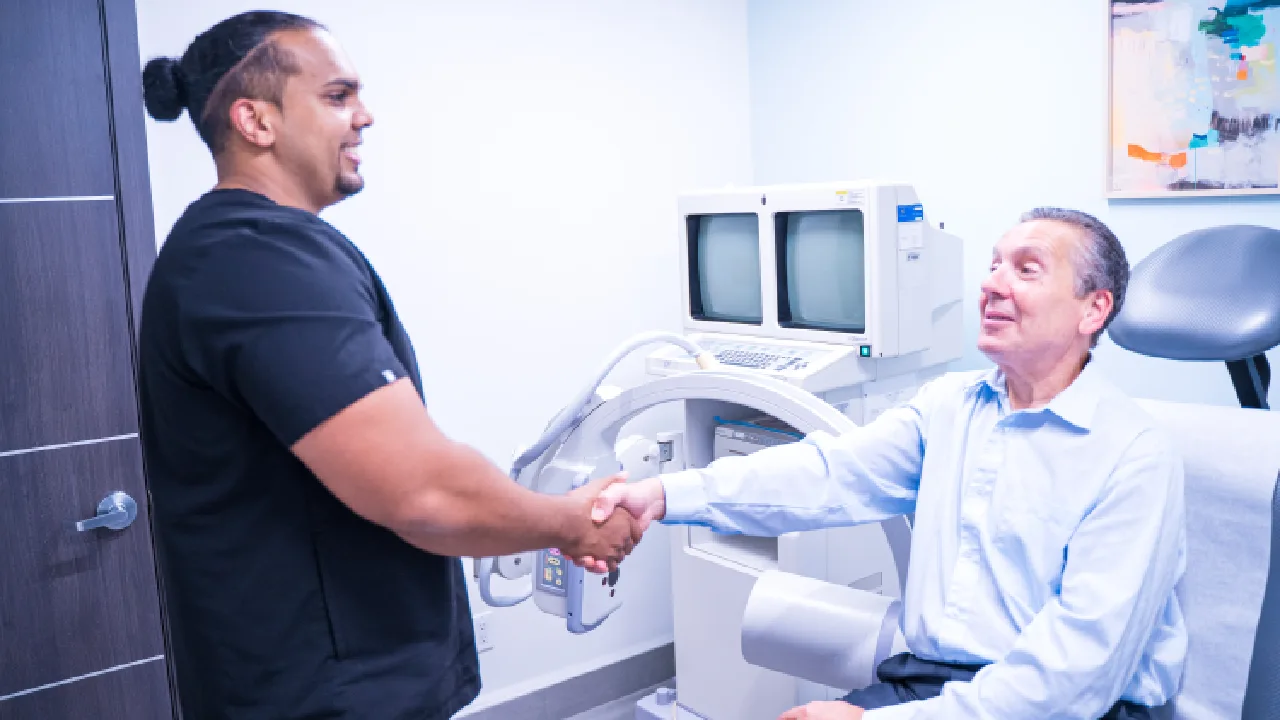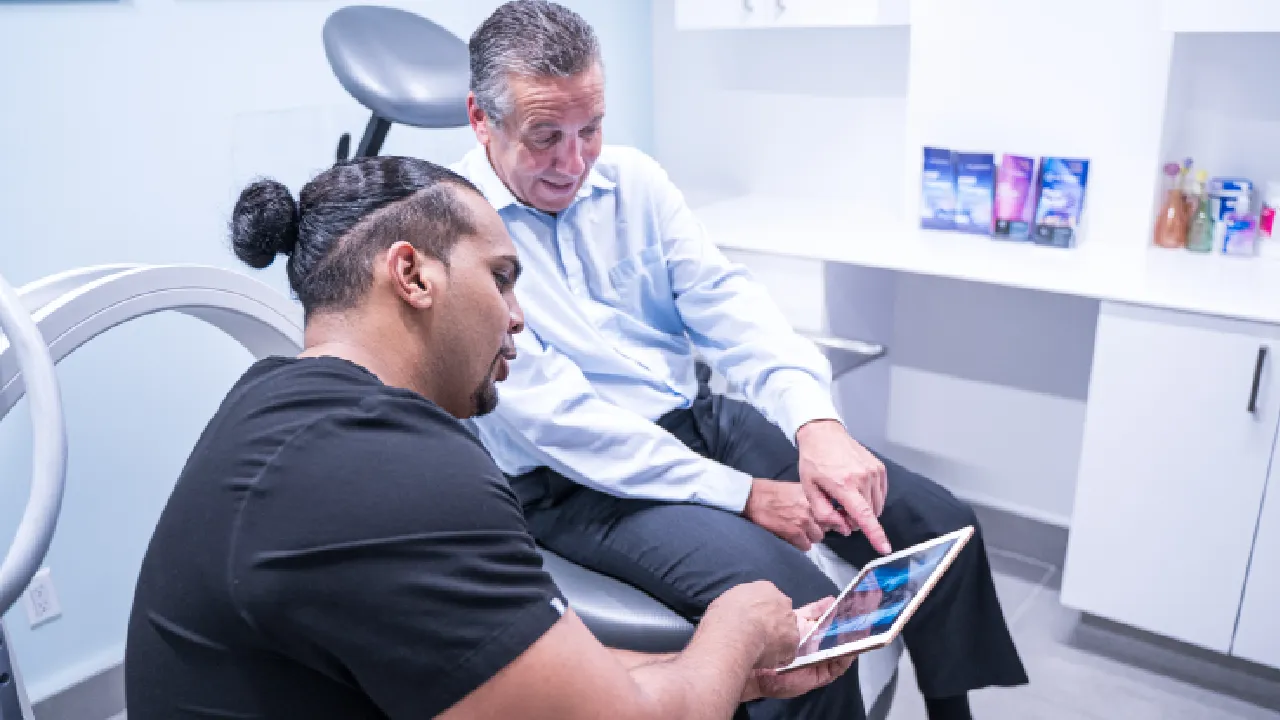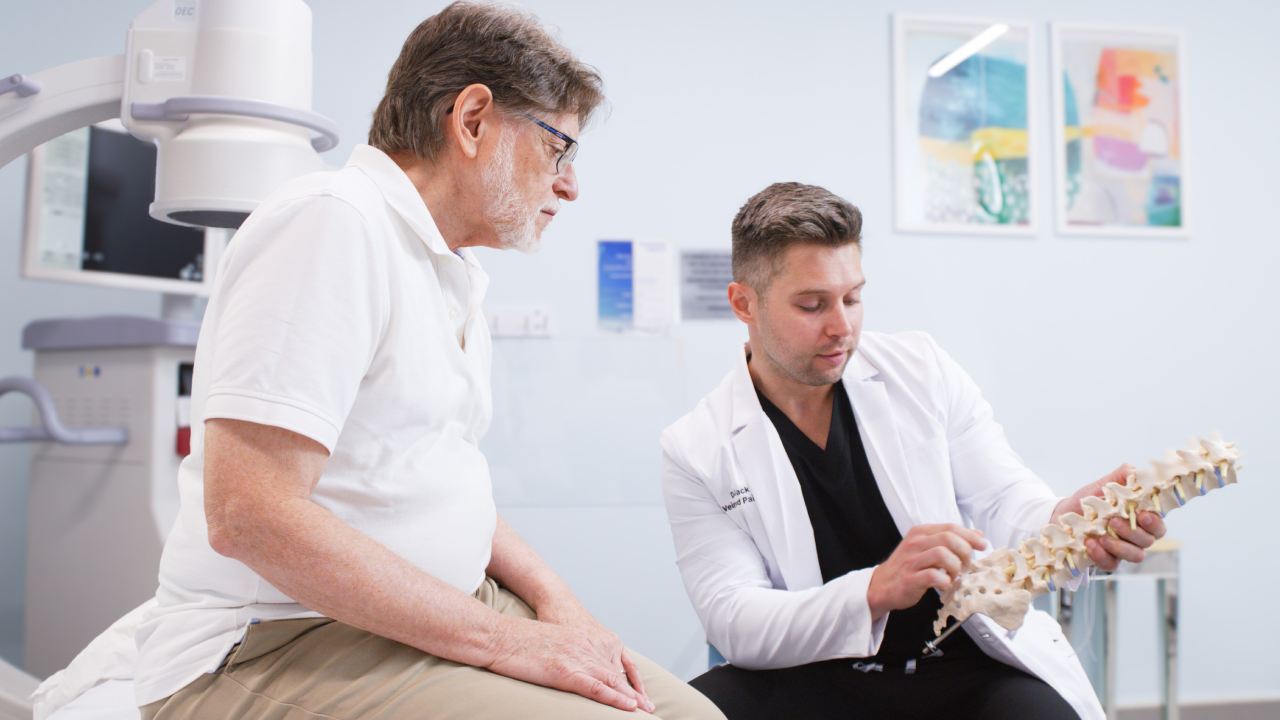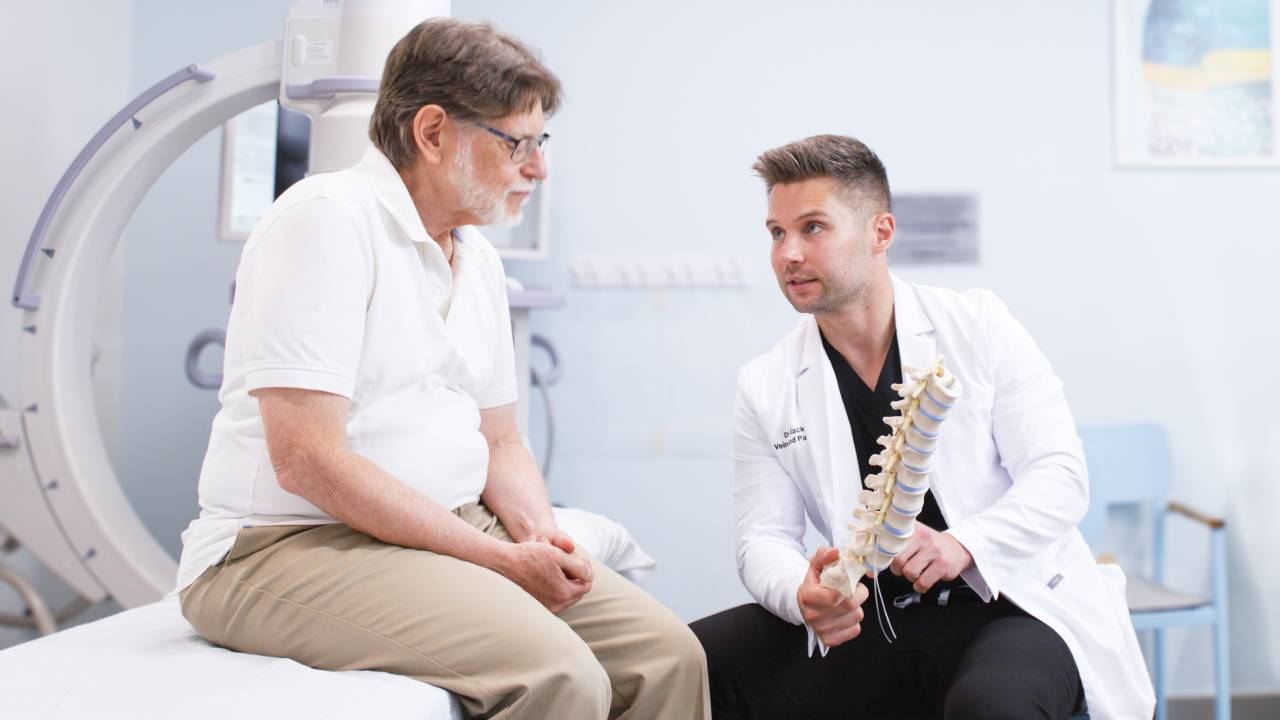
The Impact of Chronic Pain on Daily Life
Chronic pain is more than just a sensation; it’s an unwelcome companion that can profoundly alter your daily existence. From the moment you wake up to the time you lay your head down to sleep, chronic pain can infiltrate every aspect of your life, affecting your physical abilities, mental health, relationships, and overall well-being. In this article, we delve into the multifaceted impacts of chronic pain on your daily life and offer coping mechanisms and strategies.
At Pain Treatment Specialists, we understand the profound impact chronic pain can have on your life, which is why we’re dedicated to providing comprehensive care to alleviate your suffering. If you’re suffering from chronic pain, we encourage you to consult our board-certified interventional pain specialists to identify and address the root cause of chronic pain. You don’t have to live with pain for the rest of your life. With proper diagnosis and minimally invasive treatments, you can reclaim a pain-free life without opioids or surgeries.
Are you interested in get more information about your condition or get a treatment?
Fill the form below to start!
1. Physical Limitations
One of the most immediate and tangible impacts of chronic pain is the restriction it places on your physical abilities. Tasks that once seemed effortless may now feel like insurmountable hurdles. Simple activities such as walking, standing, or even sitting for extended periods can trigger intense discomfort, limiting your mobility and independence. The constant presence of pain may compel you to forgo activities you once enjoyed, leading to a sedentary lifestyle that further exacerbates the issue.
Coping Strategies:
- Modify Activities: Adjust your daily activities to accommodate physical limitations, breaking tasks into smaller, more manageable steps.
- Use Assistive Devices: Incorporate assistive devices such as walking aids, ergonomic chairs, or adaptive tools to reduce strain on your body and improve mobility.
- Practice Gentle Exercise: Engage in gentle exercises such as yoga, tai chi, or water aerobics to improve flexibility, strength, and overall physical well-being.
- Implement Rest Breaks: Incorporate regular rest breaks throughout the day to prevent overexertion and manage fatigue levels effectively.
- Seek Physical Therapy: Consult with a physical therapist to develop a tailored exercise program and learn techniques to improve mobility, reduce pain, and prevent further injury.
- Prioritize Ergonomics: Pay attention to your posture and workspace ergonomics to minimize discomfort and strain on your body during daily activities.
- Utilize Heat and Cold Therapy: Apply heat packs or cold compresses to alleviate muscle tension, reduce inflammation, and provide temporary pain relief as needed.
- Practice Mindfulness: To reduce muscle tension, engage in mindfulness techniques such as deep breathing, progressive muscle relaxation, or guided imagery.
2. Emotional Toll
Living with chronic pain can take a significant toll on your emotional well-being. The persistent discomfort and frustration stemming from unrelenting pain can lead to feelings of helplessness, anger, and even depression. It’s not uncommon to experience a sense of grief for the life you once had or anxiety about the future as the uncertainty of managing chronic pain looms large. Moreover, the constant struggle to cope with pain may leave you feeling isolated from friends and family, compounding feelings of loneliness and alienation.
Coping Strategies:
- Express Your Feelings: Share your emotions with trusted friends, family members, or a therapist to process feelings of anger, sadness, or frustration.
- Engage in Relaxation Techniques: To reduce stress, practice relaxation techniques such as meditation, deep breathing exercises, or progressive muscle relaxation.
- Find Distractions: Engage in activities that bring you joy or distract you from pain, such as reading, listening to music, or pursuing hobbies.
- Seek Support: Lean on supportive friends, family members, or support groups for empathy, understanding, and validation of your experiences.
- Practice Self-Compassion: Be kind to yourself and acknowledge the challenges you face without self-judgment or criticism.
- Set Realistic Goals: Break tasks into smaller, achievable goals and celebrate your accomplishments, no matter how small.
3. Cognitive Impairment
The cognitive impacts of chronic pain should not be underestimated. Studies have shown that persistent pain can impair cognitive functions such as attention, memory, and decision-making. The brain’s resources are diverted to processing and coping with pain, leaving less capacity for other tasks. This cognitive fog can interfere with your ability to concentrate at work or school, leading to decreased productivity and performance. Additionally, the mental fatigue associated with chronic pain can exacerbate these challenges, creating a vicious cycle of impairment.
Coping Strategies:
- Use Memory Aids: Utilize tools such as calendars, to-do lists, and smartphone apps to help organize tasks and appointments and improve memory recall.
- Break Tasks into Smaller Steps: Divide complex tasks into smaller, more manageable steps to reduce cognitive overload and improve focus and concentration.
- Practice Mindfulness: Engage in mindfulness meditation or mindfulness-based stress reduction techniques to enhance attention and concentration.
- Stay Organized: Maintain a clutter-free and organized environment to minimize distractions and facilitate cognitive function.
- Get Adequate Sleep: Prioritize quality sleep practices to optimize cognitive function, including maintaining a consistent sleep schedule and creating a conducive sleep environment.
- Stay Physically Active: Engage in regular physical activity to promote blood flow to the brain, enhance cognitive function, and reduce the risk of cognitive decline.
- Challenge Your Brain: Stimulate your mind with activities such as puzzles, brain games, or learning new skills to promote neuroplasticity and cognitive resilience.
4. Sleep Disturbances
A good night’s sleep is essential for overall health and well-being, but chronic pain can disrupt this vital aspect of life. The discomfort and inability to find a comfortable position can make it difficult to fall asleep or stay asleep throughout the night. Even when sleep is achieved, it may be shallow and restless, failing to provide the restorative benefits needed to face the day ahead. This can exacerbate pain sensitivity, worsen mood disorders, and impair cognitive function, further compounding the challenges of living with chronic pain.
Coping Strategies:
- Establish a Bedtime Routine: Create a consistent bedtime routine to signal to your body that it’s time to wind down and prepare for sleep.
- Limit Stimulants: Avoid consuming caffeine, nicotine, and alcohol close to bedtime, as they can disrupt sleep patterns and contribute to insomnia.
- Create a Relaxing Environment: Optimize your sleep environment by keeping the bedroom dark, quiet, and cool and investing in a comfortable mattress and pillows.
- Practice Relaxation Techniques: Engage in relaxation techniques such as deep breathing exercises, progressive muscle relaxation, or visualization to promote relaxation before bed.
- Limit Screen Time: Minimize exposure to screens, including smartphones, tablets, and computers, as the blue light can interfere with melatonin production and disrupt sleep.
- Establish a Sleep Schedule: Maintain a consistent sleep schedule by going to bed and waking up at the same time each day, even on weekends, to regulate your internal clock.
- Limit Naps: Avoid long naps during the day, as they can interfere with nighttime sleep patterns. If you need to nap, keep it short (around 20-30 minutes) and early in the day.
5. Impact on Relationships
Chronic pain doesn’t just affect the individual experiencing it; it can also strain relationships with loved ones. Partners, family members, and friends may struggle to understand the extent of your pain or may feel helpless in their attempts to provide support. Communication breakdowns can occur as a result of the emotional and physical toll that chronic pain takes on both parties. Feelings of resentment or frustration may arise, leading to conflict and strain.
Coping Strategies:
- Open Communication: Foster open and honest communication with your partner, family members, and friends about the challenges you’re facing due to chronic pain.
- Educate Loved Ones: Provide information and resources to help loved ones understand the impact of chronic pain on your life and how they can support you effectively.
- Set Boundaries: Establish clear boundaries with friends and family regarding what you can and cannot do due to your pain limitations, and communicate your needs openly.
- Express Gratitude: Show appreciation for the support and understanding offered by your loved ones, acknowledging their role in helping you cope with chronic pain.
- Engage in Joint Activities: Find activities that you and your loved ones can enjoy together despite your pain limitations, focusing on quality time and shared experiences.
- Practice Empathy: Cultivate empathy and understanding for the impact chronic pain may have on your loved ones, recognizing that they, too, may experience emotional stress.
6. Financial Burden
The financial implications of chronic pain can be substantial. Medical expenses, including doctor’s visits, medications, and treatments, can quickly accumulate, placing a strain on your finances. Moreover, the inability to work or the need to reduce working hours due to pain can result in a loss of income, further exacerbating financial stress. Additionally, the cost of adaptive equipment or home modifications to accommodate physical limitations adds another layer of financial burden. It’s crucial to explore all available resources, such as disability benefits and financial assistance programs, to alleviate some of the financial strains.
At Pain Treatment Specialists, we strive to provide accessible and cost-effective care options to alleviate the financial burden of chronic pain. We work closely with insurance providers to maximize coverage and minimize out-of-pocket expenses for our patients. We also offer hassle-free insurance verification before your first appointment so you can proceed with your treatments with complete clarity about the financial implications of your treatment. Additionally, we offer flexible payment plans to ensure that cost is not a barrier to obtaining pain management.
Contact Pain Treatment Specialists to Manage and Treat the Root Cause of Chronic Pain
Pain Treatment Specialists is at the forefront of comprehensive pain management, led by board-certified interventional pain doctors dedicated to your well-being. Our approach focuses on minimally invasive pain treatments—we strongly oppose the use of opioids and only recommend surgeries when absolutely necessary.
With offices conveniently located in New York and New Jersey, including Midtown Manhattan, the Financial District, Brooklyn, and Westchester in New York, as well as Clifton, West Orange, and Woodland Park in New Jersey, accessing our expertise is convenient. Whether you’re suffering from back pain, joint pain, or neuropathic discomfort, our team is committed to restoring your quality of life and helping you reclaim control over your health.
FEATURED POSTS BY PAIN DOCTORS



















